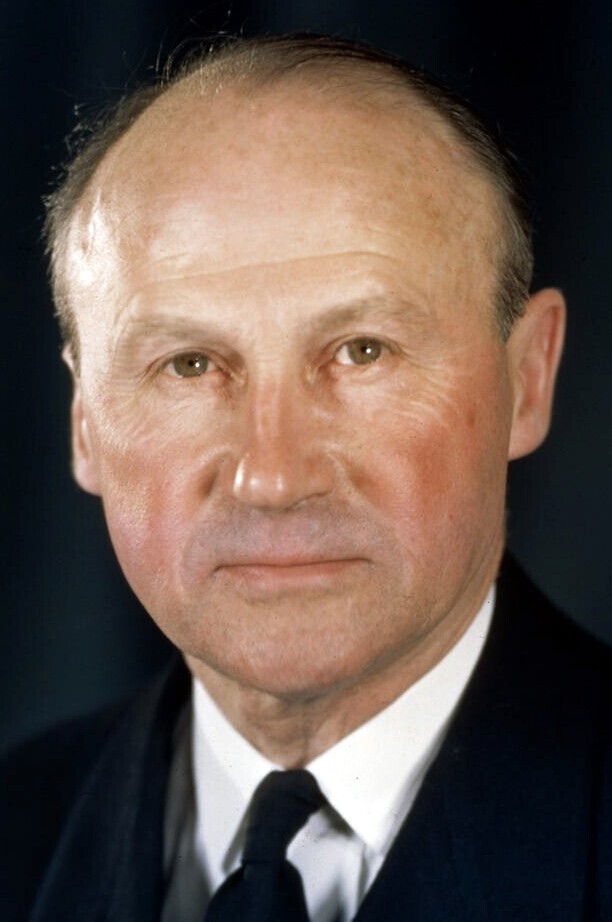Leaders of the second front –
Hero of Dunkirk evacuation ready to take Allies back to continent
Eisenhower chooses man active in invasions
By Boyd Lewis, United Press staff writer
A handful of Allied leaders will lead millions of soldiers in the “second front” against the Nazis on the continent of Europe. Who are these men? What are they like? Are they capable of the big job before them?
In this, the third of a series of articles, Boyd Lewis of the United Press tells the story of Adm. Sir Bertram H. Ramsay, the hero of Dunkirk, who has been chosen by Gen. Eisenhower to command the fleet that will take the Allies back to France.

Adm. Ramsay
“Ramsay got ‘em off and Ramsay’ll get ‘em on again,” is a common reaction to Prime Minister Winston Churchill’s designation of the naval commander-in-chief in Gen. Dwight D. Eisenhower’s “second front” invasion staff.
Adm. Sir Bernard Home Ramsay is the miracle man of Dunkirk, whose patchwork flotilla of motor launches, cabin cruisers, fishing boats, private yachts, tugs, trawlers and destroyers snatched 330,000 British troops out of France under the noises of the advancing German armies.
Gen. Eisenhower must have known when he asked Mr., Churchill to name Adm. Ramsay to command the “return engagement” that no other name would strike the Prime Minister with such dramatic impact, it fell to Adm. Ramsay in Britain’s “darkest hour” to extemporize the brave little fleet which chugged in under shellfire and dive bombers to take the remnants of the British Expeditionary Force and a few regiments of French to England to fight another day.
That bitter June
Now this tough old sea dog has been chosen to organize and command the naval armada which will thrust the Americans and British onto the western shores of Europe for the kill – the start of the March on Berlin.
In capsule form, the appointment condenses the panorama of Allied progress since that bitter June in 1940 when Britain clutched at the negative success in u=snatching a beaten army from utter disaster. In less than three years – from evacuation in a tatterdemalion navy to assault in what will probably be the greatest armada of specially-constructed landing craft ever floated on any sea.
There is nothing in the appearance of Adm. Ramsay to suggest a man with the daring and imagination of a Drake and Hawkins. He is clean-shaven, austere, studious-looking. His thinning hair is combed across a bald spot.
Retired in 1938
In 1938, he had been retired at the age of 55 to his home at Coldstream, Berwickshire, home of the famed Coldstream Guards.
He returned to active service shortly after the outbreak of the war and was appointed flag officer commanding the Port of Dover. This was a not-too-demanding post for a “retired gaffer” and somewhat of a familiar hob for Adm. Ramsay, for in World War I, he had sailed from that port in HMS Brooke in the famed Dover Patrol.
The nature of Adolf Hitler’s blitzkrieg across France changed all that. Gen. Erwin Rommel’s panzers slashed through the French lines to Abbeville. The Germans commenced a steady squeeze that compressed the British and French into a pocket by the channel at Dunkirk.
He was ready
Little is known of Adm. Ramsay’s epochal decision to organize the “Little Navy.” The Admiralty communiqué recorded that several days before the evacuation order was given, the Dover commander sent out questionnaires to every boatowner on the coast. When the word came, he was ready.
His command sent the weirdest conglomeration of shipping the channel had ever seen scuttling across 35 miles of choppy waters to save as many as could be taken off Dunkirk Beach.
In his office at Dover, Adm. Ramsay and his assistants worked through four feverish days and nights to keep this ferry service working.
At first, they came in driblets – little clusters of exhausted, shell-shocked soldiers – then in larger groups. They accumulated on the Dover shore and were rushed inland as fast as trains could load them aboard.
Dazed nation thrilled
A dazed nation counted the arrivals and slowly it dawned upon them that the BEF was returning not in broken remnants but by hundreds of thousands – returning without its tanks and artillery, but proudly carrying its rifles and ready to contest an invasion if one should follow.
The King spoke for a grateful nation when he knighted Adm. Ramsay.
Recognition of a different sort came in 1942 when the Admiralty selected him to organize the huge fleet which was to sail in utter secrecy in April of that year to plant Americans and Britons on North Africa. Here he showed that retirement had not dulled him.
He was a natural choice of Gen. Eisenhower to organize the assault upon Sicily. Drawing upon the tremendous supply of special assault craft coming off production lines in the United States, Adm. Ramsay used more than 2,000 troopships and landing craft to bridge the water gap between Tunisia and Sicily. Gen. Eisenhower paid tribute afterwards to the “precise training” and “perfect technique.”